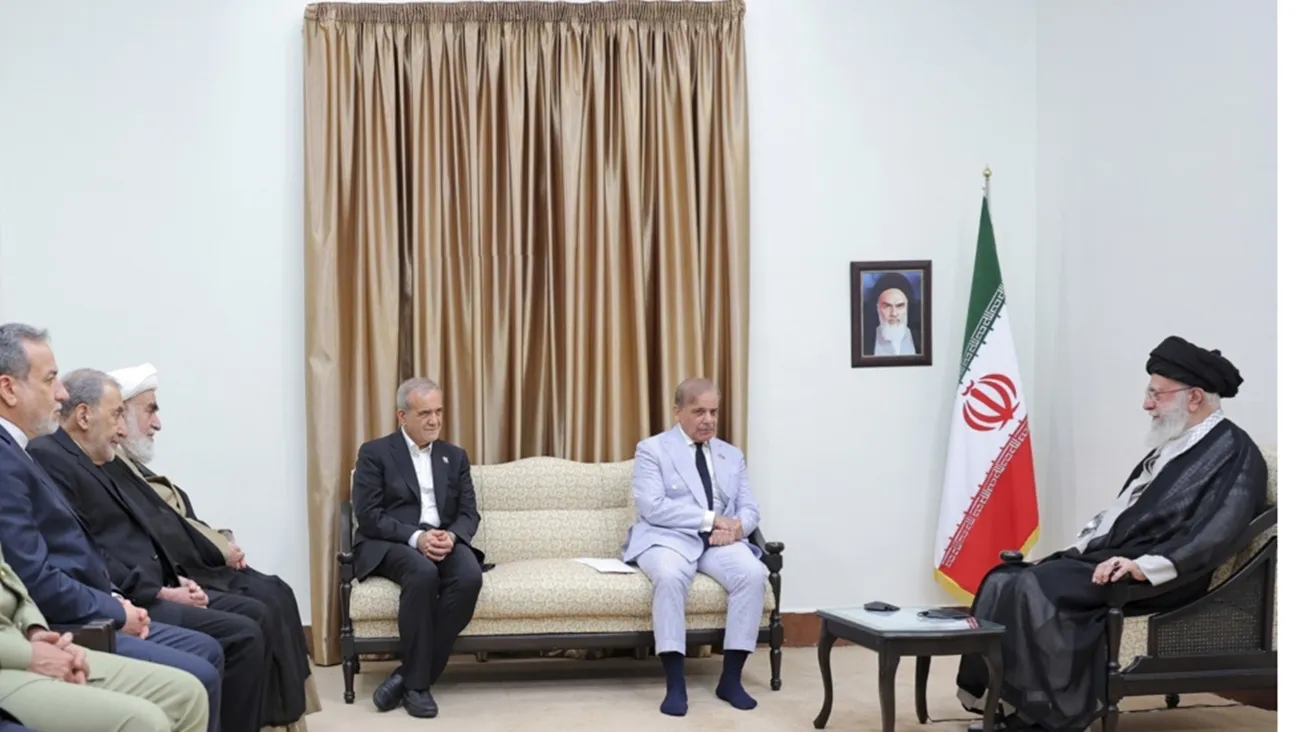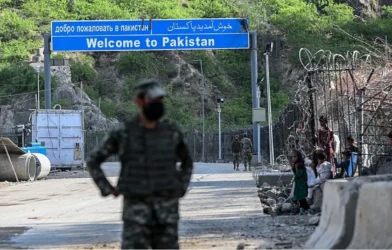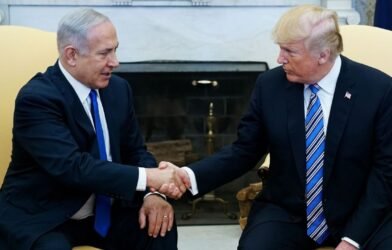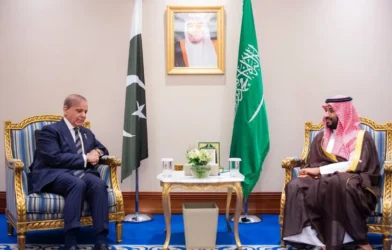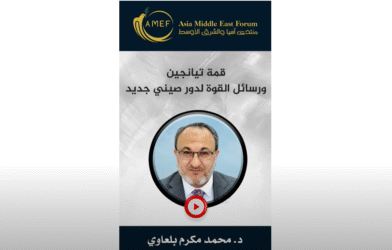Subtotal $0.00
In the midst of one of the most serious rounds of military escalation between Iran and Israel, regional changes are accelerating in a scene that redraws the map of alliances and alignments in the Middle East. Pakistan It is not only a neighboring country to Iran, but also a nuclear power in South Asia, with an exceptional geopolitical position and a complex history of balances between the East and West, the Gulf and Tehran, and Washington and Beijing, amid a network of sectarian balances, Gulf interests, and Western pressures. It is not just a neighboring country to Iran, but a nuclear power in South Asia with an exceptional geopolitical location and a complex history of balances between East and West, the Gulf and Tehran, Washington and Beijing, amid a network of sectarian balances, Gulf interests, and Western pressures, and any movement or silence from it at this time may be read as a new positioning in a heated regional moment.
With the potential for a wider conflict growing, how does Pakistan balance solidarity with Iran, avoiding the wrath of Gulf and Western allies, and ensuring border security with its traditional rival India?
This article attempts to read Pakistan's position in the Iran-Iraq standoff. IsraeliThrough the background of its relations with Tehran, the determinants of its current position, and the possible scenarios for its role if the military confrontation between the two parties is renewed in the future, especially after the United States of America entered the conflict line directly by striking Iran's nuclear reactors.
Background Relationships Iran-Pakistan
Despite sectarian and geographical differences, Iran-Pakistan relations have maintained a level of communication and coordination since the establishment of Pakistan in 1947, especially during periods of common regional threats. Iran was the first country to officially recognize independent Pakistan, and for decades it remained a regional ally in the face of communist and Indian challenges, and the relationship deepened during the rule of Shah Mohammad Reza Belhoy, as the two countries joined an alliance with the West, especially within the framework of the US-backed CENTO organization, as Iran supported Pakistan in its wars with India with weapons and spare parts and provided diplomatic and media support under "Islamic brotherhood".
Pakistan implicitly sided with Iraq during the War Iran-Iraq (1980-1988), due to the change of the political regime in Iran to a revolutionary regime hostile to the United States and the Gulf countries, and its adoption of the principle of exporting the revolution and stirring sectarian sensitivity, as well as taking into account the interests of millions of Pakistani workers who were working in both Iraq and other Gulf countries at the time, which caused political tension with Tehran, reflected in Iran's closeness with India and its lack of enthusiasm in supporting Pakistan on the Kashmir issue, before relations returned to a more flexible path in the 1990s, especially with cooperation in the Afghan file, although it remained fraught with suspicion due to Pakistan's support for the Taliban movement, while Iran supported the Shiite alliance in return.
Despite the challenges, the two countries have maintained what can be called a "necessary hotline" of coordination, especially on security issues, such as securing the common border in Balochistan province, which is one of the most fragile areas in the relationship, as both Tehran and Islamabad accuse the other of supporting insurgent groups active on both sides of the border, exploiting the complex tribal and sectarian environment of the region, in addition to communication regarding the Afghan file, and some limited trade exchanges, whose volume in 2021 reached less than 400 million dollars, due to Western sanctions.
Pakistan's position on the escalation
When Israeli attacks on Iran began on June 13, Pakistan was one of the first countries to express its public rejection of this escalation, although its position came within a delicate balance between principled solidarity with Iran and avoiding a public alignment that could be understood as aligning with an anti-Western or anti-Gulf axis.
In a phone call with Iranian President Masoud Bazeshkian, Pakistani Prime Minister Shahbaz Sharif expressed "full solidarity" with the Iranian people and condemned what he described as "unjustified Israeli aggression," stressing that Pakistan "stands with Iran in the face of this escalation that threatens the stability of the region."
This position was also reflected in an official statement by the Pakistani Foreign Ministry, which condemned the "dangerous provocations" and described the escalation as "a violation of state sovereignty and a threat to regional and global peace," without explicitly naming Israel, a formulation that reflects Islamabad's usual diplomatic caution.
However, the most prominent position came from Defense Minister Khawaja Muhammad Asif, who stated at the beginning of the crisis that Pakistan "will not abandon Iran and will support it with all its strength." These statements sparked widespread controversy and later prompted him to clarify that "Iran has not requested military support from Pakistan, and there is no current intention for any direct intervention." This was interpreted as an attempt to contain the media escalation and soften the message to international parties.
In a remarkable tweet on the X platform, Assef sharply criticized Israel, calling it a "non-signatory nuclear state to the Non-Proliferation Treaty," noting that "the West turns a blind eye to Israel's aggressive behavior and continues to support it, while the rest of the world is held accountable for its most basic actions."
In the UN Security Council, Pakistan expressed its full support for Iran's rights to self-defense based on the UN Charter, condemned the US strikes on Iran's nuclear facilities as a violation of the UN Charter, and called on the Security Council to condemn it. At an emergency Security Council session on June 22-23, 2025, Pakistan, along with Russia and China, submitted a draft resolution demanding an immediate and unconditional cessation of hostilities in the Middle East and a diplomatic dialogue to resolve Iran's nuclear issue.
Although the official discourse remained diplomatic, the Pakistani street, especially among the Islamic and Shiite currents, showed clear solidarity with Iran, describing the Israeli attacks as a "blatant provocation" and "aggression against an Islamic state," in a narrative that intersects with notions of a "common enemy."
It cannot be ignored that the symbolic sympathy for Iran among large segments of Pakistani society keeps domestic pressures present, even if the government refrains from taking decisive positions, and Pakistani public opinion shows widespread sympathy for the Iranian position and sees Israel as a common adversary in the narratives of the "Islamic Resistance."
However, decision-makers in Islamabad realize that overt or military involvement in any axis may cost the country dearly. Pakistan has deep strategic and economic ties with Saudi Arabia and the UAE, and relies on international aid, much of which goes through Washington and the International Monetary Fund, all of which are sensitive to any major rapprochement with Tehran.
Determinants of Pakistan's position
Pakistan's position on the escalation between Iran and Israel is influenced by several internal and external factors that make taking a clear position highly sensitive and a political and diplomatic risk.
Domestically, Pakistan is facing a severe economic crisis, with high inflation, declining foreign exchange reserves, and increasing reliance on international aid, making it unlikely to engage in regional adventurism.
It is dealing with a fragile economic situation, as its economy grew by about 2.7 percent during the fiscal year ending in June 2025, without reaching the targeted rates, despite the support of International Monetary Fund programs and the implementation of a $7 billion aid package within the Fund's program in September 2024, while applying conditions that Sharif previously described as "strict" from the Fund, in order to complete the 37-month loan program, in addition to the fragility of political stability and the multiple decision centers between the civilian government and the military institution, which weakens the state's ability to resolve major issues.
While Pakistan has a large Shiite minority of between 10 and 15 percent of the population and enjoys social and political weight, there are also hardline Salafi and Deobandi currents, some of which are openly hostile to Iran. This makes any siding with Tehran fraught with highly sensitive internal consequences that could ignite sectarian tensions in more than one region.
These balances have led to an escalation of hate speech and sectarian attacks against Shiites in a number of regions. Iran has repeatedly expressed its concern over the targeting of the Shiite component, while Pakistan considers such criticisms as an unacceptable interference in its internal affairs.
Although there have been positive moments in the relationship, these sectarian differences have remained a hidden element in political tension and a lever to mobilize internal sensitivities at moments of crisis, especially when they intersect with external pressures.
Externally, Pakistan relies heavily on remittances from millions of expatriates in the Gulf, as well as direct investments and financial support from Saudi Arabia and the UAE. These capitals are implicitly closer to Israel in the conflict, which explains why Pakistan is keen not to anger them or give wrong signals about Islamabad's positioning.
While security cooperation with Iran is necessary to secure the border in Balochistan province, the relationship remains complex and not without mutual suspicion, especially with the continued activity of armed groups that each capital accuses the other of supporting.
Islamabad fears that any excessive rapprochement with Tehran will be interpreted as crossing the American red line, especially in light of the continuation of Western sanctions on Iran and Pakistan's dependence on international financial institutions that are subject to direct American influence.
In this context, one cannot ignore the role of the military establishment, which holds the keys to strategic decision-making. It has traditionally tended to be cautious and pragmatically neutral, preferring to avoid any alignment that might weaken Pakistan's position in the balance of power, whether with Iran or India, or in sensitive security issues such as Afghanistan. Thus, Pakistan's position is shaped not only by the logic of foreign policy, but also by a network of internal interests and complex regional balances, governed by delicate calculations that do not tolerate adventurism.
Conflict Escalation Scenarios
In light of the delicate equations governing Pakistan's position on escalation, any slide of the crisis towards an open regional confrontation puts Islamabad in front of thorny options that go beyond political slogans to strategic survival calculations, as the country that is trying to stabilize neutrality may not be able to maintain this balance if the conflict develops into a comprehensive stage, as Pakistan may find itself forced to intervene more effectively if a serious threat emerges of the total collapse of the Iranian state, in light of the common realization by Moscow, Ankara, Beijing and Islamabad of the importance of preventing Iran's collapse and its catastrophic repercussions on regional stability, and the emergence of a pro-Zionist regime in
On the other hand, in a less dire scenario, if popular pressure at home escalates or Pakistan finds itself in a new security situation, such as a border escalation with India that is clearly supported by Israel, or sudden Israeli activity in Balochistan, it may be inclined to identify with Iran in a limited way, by adopting a more strident rhetoric towards Israel, or providing symbolic support, especially with the clear and significant Israeli participation and support for India during the recent military confrontation in April 2025.
Although this scenario may satisfy the interior, it carries with it the risk of disrupting relations with the Gulf and America, and even fueling sectarian conflicts internally, and pushing it towards further deterioration through the activation of armed groups on its western and eastern borders, or targeting its vital projects from parties that see its position as inaction or bias, in this case, Islamabad would be forced to engage in intensive security operations, and possibly cooperate with international parties to control the scene, which would impose heavy security and political costs on it.
The Future of the Iran-Pakistan Relationship
Although the relationship between Tehran and Islamabad has never reached the level of an alliance, it has always been based on the principle of "managing the dispute" and intermittent cooperation in security and geographical files, such as securing the border and monitoring armed movements in the Balochistan region, but the Iranian-Israeli escalation is re-testing this relationship on new grounds, and reading it not as a separate bilateral file, but as part of the map of interlocking regional balances, as for Tehran, Pakistan represents an irreplaceable neighbor, especially in light of its declining relations with the Gulf countries, and escalating tension with Western powers, and Islamabad seeks to maintain the threshold
While India remains a strategic adversary of Pakistan, further Indo-Israeli rapprochement in the region may prompt Pakistan to reassess its relationship with Iran from a functional angle, as a parallel pressure card against the Indo-Israeli axis, especially with the growing Pakistani hostility to Israel - as mentioned above - due to its participation and support for India in the recent military confrontation, its supply of military technology to its arch enemy, and cooperation ranging from security and defense to tourism and diplomacy, with an exchange of visits at the highest levels.
In the end, there is no doubt that the ceasefire will enable Pakistan to continue to adopt a neutral diplomatic discourse that focuses on calling for calm and offers moral solidarity with Iran without any practical commitment, an option that allows it to maintain its relations with Tehran, without damaging its strategic relations with the Gulf or provoking Washington, and will enable Pakistan to deal with this escalation on a careful basis, based on showing moral support for Iran without crossing international and Gulf red lines, in a policy that takes into account the internal and external environment and tries to avoid igniting any additional front in a highly inflammatory regional environment. In the foreseeable future, the relationship between Tehran and Islamabad will continue to be governed by regional tensions and constrained by the ceiling of security cooperation and political pragmatism, without evolving into a true partnership and without being completely broken, unless radical regional shifts are imposed on it.



